Conflicts and Food Diplomacy: An Islamic Perspective
The importance of food as the main source of livelihood usually concerns policymakers, leaders, family heads, and individuals during shortages of supply. However, people seldom noticed some diplomacy around food supply and demand in society which usually enhances food security and stabilizes the economy (Wan & Zhou, 2017). Globally, economies of scale have encouraged international trade of import-export of goods between countries which might be challenging in the event of a World War or regional war stocking the movement of food between countries(Mcdonald, n.d.). It is interesting to ask why food is important at every official meeting, event, or conference. The political class has invented the heading “lunch invitation” for political alliances and coalitions. Religious organizations have recently used the term breakfast time, lunch day, and weekend dinner to invite neighbors to enhance inclusiveness and understanding (Epstein, 2002; Busari, 2021). Food diplomacy has been used to promote countries' image, improve international ties, and broker peace between nations especially warring parties or political rivals who are invited for peaceful negotiation and cooperation through dinner gatherings. The global Thai food initiative to expand the number of local restaurants from 5,500 to 8000 to provide food around the world was considered by the Economist newspaper in 2002 as global food diplomacy by the Thai government, perhaps to improve its national image across the globe. South Korean cuisine with an organized culinary event across the world since 2009 was another food diplomacy success story to improve country image and international ties with other nations, especially in trade and tourism(Caroline Sabater, 2021). The United States of America has also explored the potential of food diplomacy since 2012 by creating a committee of 80 American chefs for the advertising and promotion of American food across the globe(The Diplomatic Insight, 2023). The Malaysian open house is a cultural and religious custom where visitors and strangers are generally welcome to the house or center for dining and celebrating religious festivals such as Hari Raya Puasa, Chinese New Year, Deepavali, and Christmas. Open houses in Malaysia are another food diplomacy strategy to promote harmony among races and to enhance understanding, respect, and tolerance among different cultural and religious groups(Solleh, 2015).
The hostility between Russia and Ukraine that has come to the global limelight since the 2014 Ukrainian revolution which triggered Russia's annexation of Crimea from Ukraine in collaboration with the separatist fighters of the Donetsk and Luhansk People's Republic(Jonathan Masters, 2023). The role of the Russia and Ukraine war in global food security cannot be overemphasized as the region produces about a third of the world’s wheat and barley, two-thirds of sunflower oil, and is one of the major suppliers of global corn. Almost 90% of the wheat produced by Ukraine was stocked for shipment because of the Russian blockade of the Black Sea. The unprecedented hunger game arising from the Ukraine-Russian war has stirred up anger and civil unrest, especially in developing countries across the globe(The Economist, 2022).
In the past, food played a significant role in international relations and diplomatic engagement. Food has been used as an instrument for friendship or enmity among nations. Policymakers have recognized food as an official soft power to achieve political goals. Experts have argued that rather than resulting in the use of force and military power to influence other nations, gastro diplomacy is a form of food public diplomacy tool that is sufficient to achieve political scores and end goals(Forman, 2016). For instance, in the Russia-Ukraine war, despite the support and assistance of America and the NATO forces, many countries seemed moot perhaps Russia as a superpower; however, when the war triggered a shortage of food supply across the globe, several developing countries became interested in talking and taking steps to find a solution by stopping the war. A good example is an action by the president of Indonesia, Mr. Joko Widodo, who travelled to Russia and Ukraine to make peace between the two countries. Although this move was unsuccessful, it indicated the potential of food diplomacy for global peace. The Russian Federation's military power and America-NATO counter efforts have considered the third forces of food diplomacy because the world cannot afford continuous starvation (South China Morning Post, 2022). Hence, the influence of the soft power factor in Russia-Ukraine war foreign policy cannot be overlooked, as the global food crisis has generated another concern for all and sundry. The influence of food diplomacy has also persuaded the Russian Defence Ministry to temporarily withdraw from Snake Island to support “UN efforts to organize a humanitarian corridor to ship agricultural products from Ukraine.
On the other hand, Quran exegeses confirmed the role of food security intervention of the Prophet (PBUH) in the rise to power and acceptance of his prophethood when the community was almost plunged into a deadly famine. According to the exegeses of (At-Ṭabarī, n.d.) the People of Makkah were initially hostile to the message of Allah, the prophet PBUH) prayed to Allah, and they were inflicted with famine. Abu Sufyan pleaded to the prophet (PBUH) for spiritual supplication and they were eventually relieved with surplus supplies of rain and plants. The Quran Confirmed the power of food in this scenario:
{And indeed We seized them with punishment, but they humbled not themselves to their Lord, nor did they invoke (Allah) with submission to Him} [23:676].
Supplication of the prophet (PBUH) to tame the weather was a spiritual food diplomatic strategy that salvaged the nation from famine. Similarly, the Islamic tradition promotes and encourages feeding as a means of spreading love and togetherness. The Prophet (ﷺ) said, "O people, promote peace, feed (the poor and needy) and perform Salat (night payer) when others are asleep and you will enter Jannah safely".(At-Tirmidhī, 1996). Islam also encourages the feast of food especially for the needy and poor because, apart from spreading love and communal integration, the donor receives rewards for the kind gesture if done with the intention of sadaqah. The Hadith of the prophet (PBUH) states thus: “The worst food is the food of a banquet; when forbidden by those who come to it (needy), and those who refuse invitation (rich) are invited to it, and whoever does not answer the invitation has disobeyed God and His Messenger”(Sahih Muslim, 2006, no. 1432).
Conclusion
In line with the soft power of Food Diplomacy, the invitation to feast and its effect on conflict is inherent in a gesture that can be considered a form of food diplomacy at the local and global levels. Even though food diplomacy might not bring an immediate halt to global conflict, antecedents have shown that it does have soft power for negotiation, reconsideration, and cause for truces between warring parties. Food diplomacy uses food-related initiatives and policies to foster peace, understanding, and cooperation between nations or communities, such as the Cultural Exchange, Culinary Diplomacy, Food Aid and Development Programs, Shared Meals and Dialogue, Sustainable Agriculture and Environmental Cooperation, and Culinary Education and Skill Exchange among the people that promote empowerment, economy, stability, and reduce the risk of conflicts. Therefore, food diplomacy should be explored more by nations, non-governmental organizations, and religious institutions to bridge divides, build relationships, and address underlying issues that contribute to conflicts.
References
At-Tirmidhī, M. bin I. bin surah bin M. (1996). Sunan At-Tirmidhī (Al-Jāmiʽu Al-Kabīr) (Bashar Iwad Maruf, Ed.). Dar Al-Garb Al-Islami.
Brad Mcdonald. (n.d.). International Trade: Commerce among Nations. International Monetary Fund.
Caroline Sabater. (2021, August 7). Serving Peace on a Plate: How Diplomacy Can be a Gastronomic Affair. Student Think Tank for Europe Asia Relations. https://www.stearthinktank.com/post/serving-peace-on-a-plate-food-diplomacy: accessed: 28/06/2023.
Epstein, J. Levy. (2002). School, family, and community partnerships : your handbook for action. Corwin Press.
Guanghua Wan & Zhang-Yue Zhou. (2017). Food insecurity in Asia : why institutions matter.
Ibn Jarīr At-Ṭabarī, M. bin J. bin Y. A.-Ṭabarī. (n.d.). Jāmiʽu Al-Bayan an Ta’wīl Aya Al-Quran (At-Turki, Ed.). Dar Hijr li al-Tiba‘ah wa al-Nasr wa al-Tawzi‘ wa al-I‘lan.
Jonathan Masters. (2023, February 14). Ukraine: Conflict at the Crossroads of Europe and Russia. Council on Foreign Relations. https://www.cfr.org/backgrounder/ukraine-conflict-crossroads-europe-and-russia, accessed: 28/06/2023.
Jonathan Mendelson Forman. (2016). Foreign Policy in the Kitchen. https://www.e-ir.info/2016/10/05/foreign-policy-in-the-kitchen/
Muslim bin Ḥujāj bin Muslim Al-Qushayri An-Naisābūrī, A.-I. M. (2006). Saḥīḥ Muslim (N. bin Muhammad, Ed.). Dar Ṭībah.
Saheed Abdullahi Busari. (2021). Food Insecurity Amid Covid-19 Lockdown: The Phenomenology of Prophet Yusuf"s Food Security Model. https://www.iium.edu.my/office/iiumpress
Solleh, F. M. (2015). Gastrodiplomacy as a Soft Power Tool to Enhance Nation Brand. In Journal of Media and Information Warfare (Vol. 7).
South China Morning Post. (2022, August 24). Ukraine War: Putin and Zelensky refused to meet, Indonesia says of failed Peace talks.
The Diplomatic Insight. (2023, March 1). US Secretary of State Promotes Power of Culinary Diplomacy.
The Economist. (2022, June 28). Will the Grain Deal between Russia and Ukraine Reduce Global Hunger?, https://www.economist.com/the-economist-explains/2022/07/28/will-the-grain-deal-between-russia-and-ukraine-reduce-global-hunger?gclid=CjwKCAjwkeqkBhAnEiwA5U-uMxQrJJpkPFKerfFfUtXuWVSRogUTG9qMBx4Rs7ksa75wqBhgJ6VJJBoCQnoQAvD_BwE&gclsrc=aw.ds, accessed: 28/06/2023.
About the Authors
Dr. Saheed Abdullahi Busari, an Assistant Professor at the International Islamic University Malaysia, specializes in Islamic jurisprudence and its link to socio-economic realities. He offers courses on Islamic Jurisprudence, Islamic capital market, and Shariah principles.
Dr. Sodiq Omoola is an assistant professor of Law at Ahmad Ibrahim Kulliyyah of Laws, the International Islamic University Malaysia (IIUM). He teaches Company Law and Alternative Dispute Resolution (ADR). He holds a Ph.d with a special focus on consumer ombudsman.
Disclaimer
The views expressed in this article are the author’s own and do not necessarily mirror Islamonweb’s editorial stance.

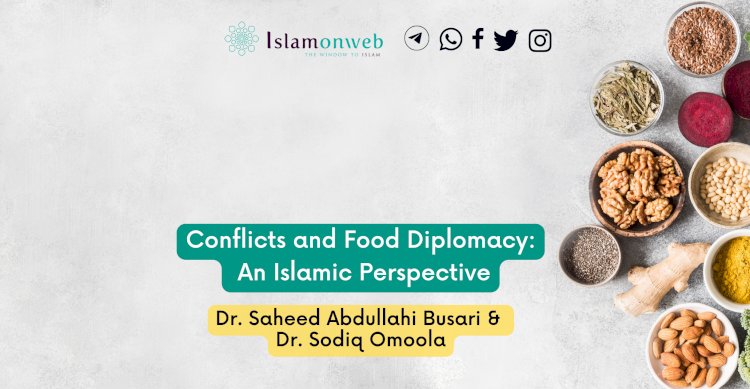



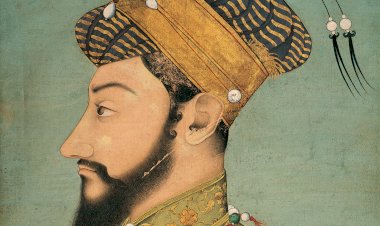
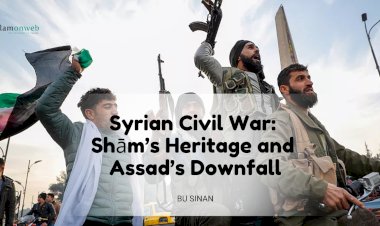
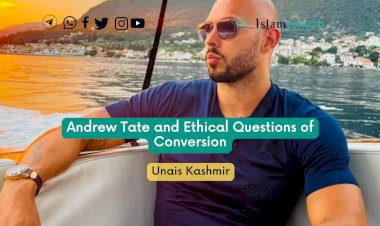

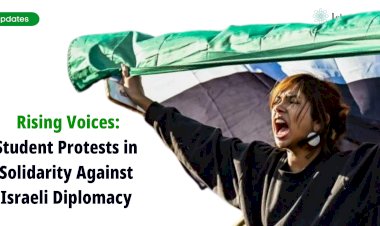














Leave A Comment